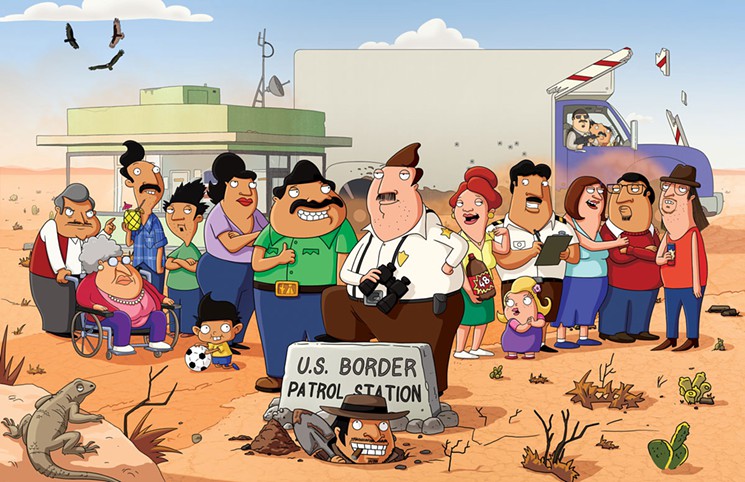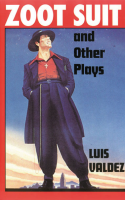Why Hollywood Can’t Put Real-Life Mexicans on TV

*There’s a very good point in the second layer of this story, about how the use of the word “pocho” revealed a telling lack in decision-making Hollywood. The fact that there was no one in the network hierarchy who understood the term, or knew what to make of it, reveals their Latino blind side and their cluelessness about how to fix it. An enlightening read. VL
 By Gustavo Arellano, OC Weekly (5 minute read)
By Gustavo Arellano, OC Weekly (5 minute read)
Last Sunday saw the bittersweet culmination of a dream I dropped 15 years ago, a dream I now want more than ever before. The occasion was the season finale of Bordertown, a FOX cartoon that satirized life on the U.S.-Mexico border and for which I served as a consulting producer. It was a historic series, the first cartoon starring Latinos on prime time. And the conclusion to Season 1, titled “Viva Coyote,” was my first writing credit and helped me get my Writer’s Guild of America (WGA), West membership—yay!
But I held no viewing party, had no friends and family over to mark the achievement. It was also the series finale for Bordertown, as FOX had announced its cancellation two weeks earlier. We just never got the ratings or critical buzz to justify a second season for executives. And that same week, all the networks and many cable, web and streaming outlets began announcing their new shows for the fall season—and only one will focus on Latinos . . . READ MORE
Gustavo Arellano is the editor of OC Weekly, author of the syndicated column ¡Ask a Mexican!, and Taco USA: How Mexican Food Conquered America. He started at the paper with an angry, fake letter to the editor and went from there—only in Anacrime!
[Photo courtesy of Fox]Suggesated reading


